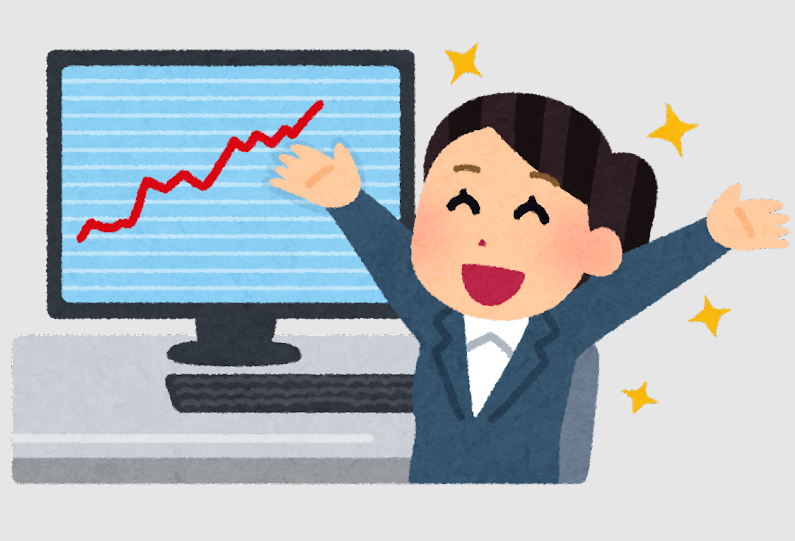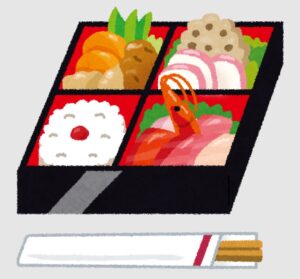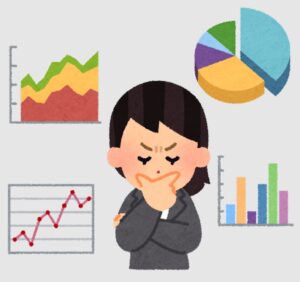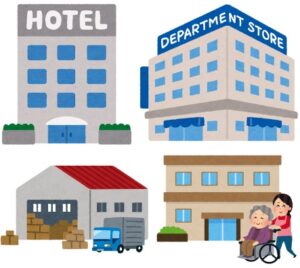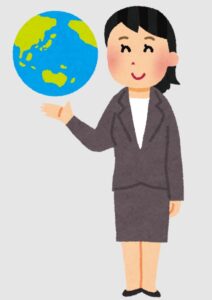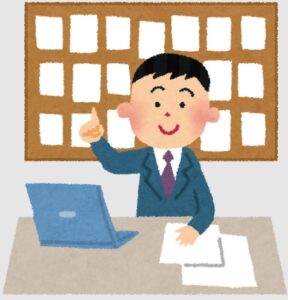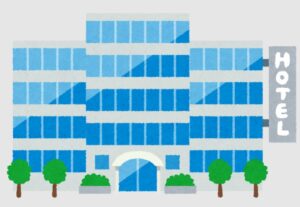「株がドカンと上がる|投資初心者のための株の世界:成長と利益の道を歩む」
~前回のつづき~
●キャピタルは狩人、インカムは地主~動く銭か、寝てる銭か~

株の儲けには2種類あります。
・キャピタルゲイン
・インカムゲイン
キャピタルゲインというのは
売買した時の差益のことです。
1株1万円の時に買って
3万円の時に売ったら
2万円の儲けです。
これがみんながイメージする方です。
インカムゲインというのは
持ってるだけで得られる利益
の事を言います。
株主配当と呼ばれるものです。
現金だったり株主優待だったり。
株をを持ってたら少しもらえる。

オーナーの特典です。
オーナーだから
会社の利益率の一部を
もらえる訳です。
別に売らなくても
持ってるだけで配当が有る。
これが株主配当であり
インカムゲインです。
●今日を獲るか、明日を育てるか~デイトレーダー vs 投資家~

デイトレーダーとは?
良く聞く言葉ではないでしょうか?
一日の下部の動きの中で
何度も売買を繰り返して
利鞘(りざや)を稼いでいく方法です。
このイメージじゃないですか?

一日中沢山の画面に張り付いて
株が上下している所を
何度も何度も売買を繰り返す。
こっちが特殊なんです。
普通株というのは
会社が利益を出して
成長していくには時間がかかる。
そんなに
売買を繰り返すというよりは
基本的には
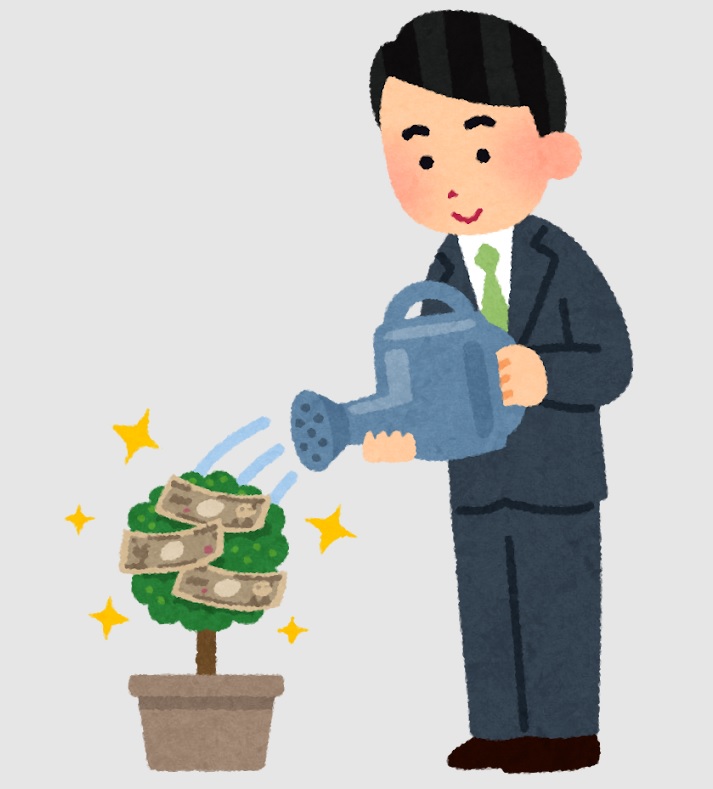
成長を見越して持ち続ける。
そして
その成長と共に
株価が上がったら売る。
それが本来の
投資の形であり基本です。
●事業で作った会社、上場で作る財産~創業者は株で金持ちになる~

なぜ上場すると
創業者はお金持ちになるのか?
社長が保有している
株がドカンと上がるからです。
そして
市場で売ることができる。
上場すると
色々な人に売る事が出来るので
買いたい人が増えて
売り先が沢山できる。
大体上場すると
欲しがる人が増えるので
株の価格は上がる。
だから
一番最初から持ってる
オーナー社長が
保有している株の価格が
ドカンと上がる。
それを売却する事によって
お金持ちになるという事です。
●社長が持ってる。だから動かない~未公開株は、動かぬ資産~

非上場企業は
株を証券取引所で
売買出来ない会社です。
これを
『未公開株』といいます。
中小企業も
ちゃんと株はあります。
株式会社と
名前が付いてる会社であれば
株は発行されています。
では株はどこにあるのか?
オーナーが持ってます。
大体小さい会社は
社長がオーナーなので
法的には会社の儲けは
全部オーナー社長のものです。
従業員にどれぐらい配るか
=還元するかというのは
社長次第です。
これは
感情的なものは置いておいて
法的にはそういうものです。
誰でも自由に
売買は出来ません。
本当は出来るんですけど
売り先が無いんです。
どうやって売っていくか?
という話です。
買った人も
なかなか次に売れない。
買い手を
自分で見つけなければならない。
社長が

と言って
行商していく訳にもいきません。
なので非上場の未公開株は
ほとんど買い手が見つからないから
売れないんですよ。
●見えてる会社は、ほんの氷山の一角~本当の可能性は、非上場に埋まってる~

非上場の新しめの企業のことを
『ベンチャー企業』といいます。
明確な基準はありません。
新しい事にチャレンジしている
若い会社の事全般指して
ベンチャー企業と言います。
非上場企業だけで
400万社あります。
400万社有るので
今の会社との相性が
合わなくても
自分と相性の合う会社というのが
確率的には
結構有ると考えていいと思います。
あなたの周りにある会社
・サントリー
・ロッテ
・カルピス
この辺りは上場してません。
非上場企業です。
上場する
メリットデメリットが色々有るので
各社の方針があり
有名な会社だから
必ず全部上場してるかというと
そうではありません。
●まとめ
◆株を買うというのは
会社のオーナーの1人になること。
◆自分のお金が株を買った会社で使われていく
→まさにその会社に投資すると言う事
◆会社の業績が良ければ
利益が分配されたり
株価が上がる事で還元される
◆資本家側への第一歩になる
Special Thanks college president Ryo.

●おまけ
≪≪perplexityちゃんによる文章まとめ≫≫
株式投資による利益には、売買による差益であるキャピタルゲインと、保有していることで得られる配当などのインカムゲインの2種類があります。
投資家には短期売買で利益を狙うデイトレーダーと、企業の成長を見越して長期保有するタイプがおり、伝統的には後者が主流です。
また、会社が上場すると創業者の持つ株の価値が高まり、市場で売却できることで大きな資産を築けます。
一方、非上場企業の株は流動性が低く、売買が難しい特徴があります。
有名企業でも非上場の例はあり、実は日本には約400万社もの非上場企業が存在します。
株を買うことは、その会社のオーナーの一人となり、会社の成長とともに資産を増やす資本家としての道が開けます。
- https://www.jibunbank.co.jp/column/article/00315/
- https://www.musashi-corporation.com/wealthhack/capitalgain-incomegain
- https://www.orixbank.co.jp/column/article/248/
- https://www.iyobank.co.jp/sp/iyomemo/entry/20231019.html
- https://www.bk.mufg.jp/column/shisan_unyo/b0159.html
- https://www.nomura.co.jp/wealthstyle/article/0062/
- https://www.matsui.co.jp/stock/study/article/capital-gain/
- https://www.am-expo.jp/hub/ja-jp/blog/article_19.html
- https://www.smbcnikko.co.jp/terms/japan/i/J0181.html
- https://www.amundi.co.jp/guide/rashinban/vol67
≪≪Chat-GPTくんによる英訳≫≫
~Continuation from Last Time~
【Capital is the hunter, income is the landlord — Fast money or sleeping money?】
There are two main ways to make money with stocks:
Capital Gains
Income Gains
Capital gains come from the profit you make when you buy low and sell high.
For example, if you buy a stock at ¥10,000 and sell it at ¥30,000, you’ve made a ¥20,000 gain.
This is the kind of profit most people imagine when they think of stocks.
Income gains, on the other hand, are profits you receive just by holding a stock.
These are called dividends — they might come in the form of cash or shareholder perks.
As a shareholder, you receive a small reward simply for owning the stock.
This is a perk of ownership — because you’re one of the company’s owners,
you’re entitled to a share of its profits.
You don’t need to sell the stock to make money — as long as you hold it, you get paid.
This is the essence of dividends, and what we call income gains.
—
【Seize today or grow tomorrow — Day trader vs. Investor】
You’ve probably heard of day traders —
people who trade stocks multiple times a day, aiming to make quick profits from short-term price movements.
You might picture them glued to a wall of monitors, buying and selling repeatedly as prices fluctuate.
That style is actually the exception, not the norm.
Normally, investing in stocks is about believing in a company’s long-term growth.
It takes time for a business to generate profits and expand.
Rather than trading frequently, most investors buy and hold stocks with the expectation that their value will rise over time.
When the company grows, the stock price follows — and that’s when long-term investors cash in.
That’s the true essence of investing.
—
【Built the business, IPO built the fortune — Founders get rich through shares】
Why do founders become wealthy when their company goes public?
Because the value of the shares they hold often skyrockets.
And once listed, those shares can be sold freely on the stock market.
Going public gives them access to a broader market — more buyers, more liquidity.
When demand increases, the price often rises.
Founders who have held shares from the beginning experience the biggest windfall.
They own a large portion of the company, and when share prices soar,
so does their personal wealth.
By selling those shares, they turn equity into cash —
and that’s how they become rich.
—
【The CEO holds it. That’s why it never moves — Unlisted shares are frozen assets】
Unlisted companies are businesses whose shares can’t be traded on the stock exchange.
These are called private shares or unlisted stocks.
Even small companies have shares —
as long as the company is registered as a “Kabushiki Kaisha” (joint-stock company),
it issues stock.
But who owns those shares?
In most cases, the founder or CEO.
And in small businesses, the CEO is usually the majority owner.
Legally, all profits belong to the owner.
How much is distributed to employees is entirely up to the CEO.
It may sound cold, but that’s how ownership works under the law.
While in theory, the stock can be sold, there’s usually no market for it.
There’s no easy place or platform to find buyers.
If you want to sell, you have to find a buyer yourself.
Even if someone buys it, they’ll struggle to sell it again unless they find another private buyer.
It’s not like the CEO can go door to door saying:
> 💬 “Hey, want to buy some of our shares?”
That’s why unlisted stocks rarely sell —
not because they’re worthless, but because there’s no easy way to sell them.
—
【The companies you see are just the tip of the iceberg — Real potential lies in the unlisted】
Startups that haven’t gone public are often called venture companies.
There’s no strict definition,
but in general, it refers to young companies taking on new challenges.
In Japan alone, there are about 4 million private companies.
That means, even if your current job or company doesn’t suit you,
there’s a high chance that a better match does exist out there — maybe among the unlisted.
Famous companies like:
Suntory
Lotte
Calpis
…are all unlisted.
Not every big or well-known company is public.
Going public has both pros and cons, and each company has its own strategy.
So no — being famous doesn’t automatically mean being listed.
—
【Summary】
Buying a stock means becoming part-owner of a company.
Your money is used by the company you invest in — that’s what investing really means.
If the company performs well, profits are shared via dividends or rising stock prices.
Owning stock is the first step toward becoming a capitalist.
Special Thanks OpenAI and Perplexity AI, Inc
